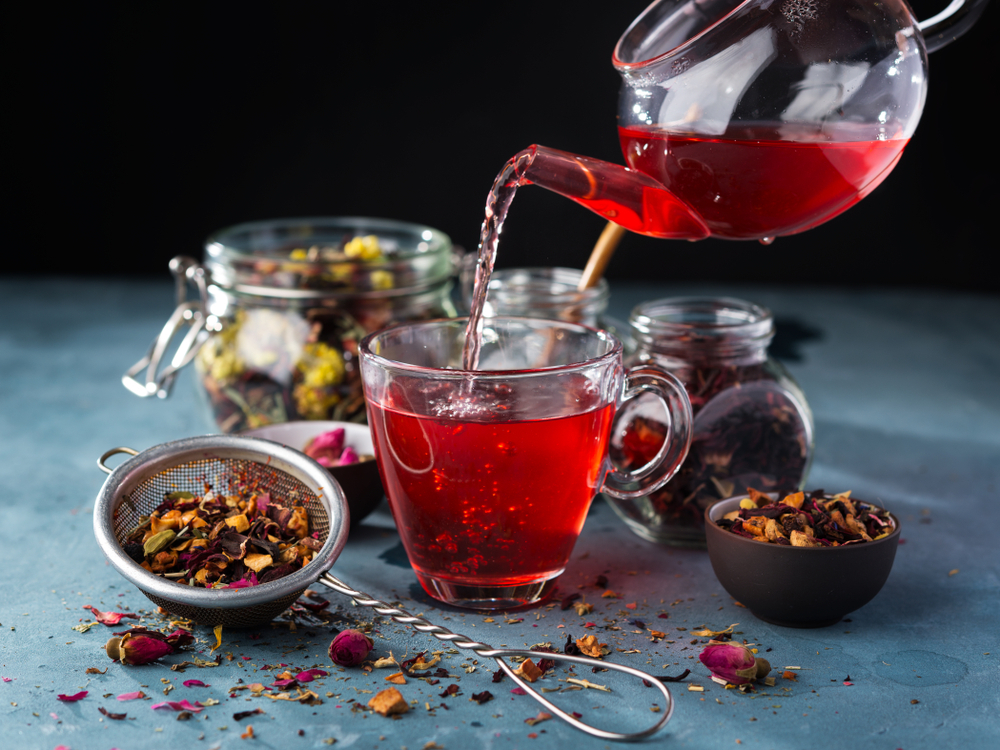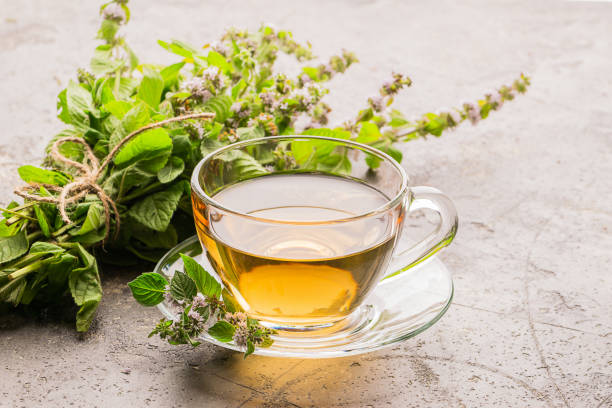
Herbal teas have long been celebrated for their myriad health benefits, flavors, and ability to soothe the mind and body. Unlike traditional teas derived from the Camellia sinensis plant, herbal teas are made from infusions of herbs, spices, flowers, and fruits. This vast variety provides unique flavors and distinctive health benefits that make herbal teas an appealing alternative to caffeinated beverages. From improving digestion and boosting immunity to relieving stress and enhancing sleep, the benefits of drinking herbal teas are diverse and rewarding..
1. Rich in Antioxidants
One of the most significant advantages of herbal teas is their high antioxidant content. Many herbs, like chamomile, hibiscus, and green rooibos, are packed with antioxidants that combat oxidative stress, a process linked to aging and various chronic diseases. Antioxidants help neutralize harmful free radicals, which can cause cell damage over time. Hibiscus tea, for example, contains high levels of anthocyanins and polyphenols, powerful antioxidants known to support cardiovascular health and reduce inflammation.
2. Supports Digestive Health
Herbal teas have a long-standing reputation as natural digestive aids. Peppermint tea, for instance, contains menthol, a compound known to relax the gastrointestinal tract, easing symptoms of bloating, gas, and indigestion. Ginger tea is another powerful digestive ally. It has been widely used for centuries to reduce nausea, alleviate stomach discomfort, and support overall digestive function. The warmth of these teas can also help stimulate digestion, making them ideal after meals.
3. Boosts the Immune System
Regularly drinking herbal teas can give your immune system a natural boost. Teas made from elderberry, echinacea, and ginger are known to support the body’s defense against infections. Elderberry tea, in particular, is rich in vitamin C and antioxidants that strengthen the immune system and reduce the duration of colds and flu. Echinacea tea, on the other hand, is known for its immune-boosting properties, potentially reducing the likelihood of catching common viruses. Consuming these teas can be a comforting and effective way to bolster immunity, especially during colder seasons.
4. Promotes Relaxation and Reduces Stress
Herbal teas have a calming effect on the mind, thanks to the compounds found in many herbs. Chamomile tea, one of the most popular choices for relaxation, contains apigenin, a compound that binds to receptors in the brain to reduce anxiety and promote sleepiness. Lavender tea is another soothing option, known for its ability to calm nerves and reduce stress. Drinking a warm cup of herbal tea can create a comforting ritual, signaling to the mind and body that it’s time to unwind. This makes herbal tea an excellent natural remedy for those who suffer from stress and anxiety.
5. Aids in Sleep and Improves Sleep Quality
For people struggling with insomnia or poor sleep quality, herbal teas offer a natural alternative to sleeping pills. Valerian root tea, for instance, has sedative properties that can help induce sleep. It is often combined with other herbs, like lemon balm and chamomile, to enhance its effectiveness. Chamomile tea is also widely known for its mild sedative effects and can help people relax before bedtime. Drinking these teas at night can create a peaceful bedtime routine, making it easier to fall asleep and enjoy restful sleep.
6. Helps Manage Weight
Some herbal teas can support weight management by aiding in digestion, improving metabolism, or reducing cravings. For example, green tea and yerba mate are known to have mild thermogenic properties, which can increase calorie burn. Dandelion tea is also popular for its diuretic effect, helping to reduce water retention and bloating. Additionally, herbal teas without added sweeteners are calorie-free, making them an excellent choice for anyone looking to manage their weight in a healthy, sustainable way.

7. Balances Hormones and Supports Female Health
Certain herbal teas can provide hormonal support, particularly for women. Red raspberry leaf tea, for example, is rich in vitamins and minerals that help tone the uterus and can ease menstrual cramps. Many women also turn to chasteberry and black cohosh teas for their balancing effects on estrogen and progesterone levels, which can be beneficial during the menstrual cycle or menopause. Additionally, herbal teas like fennel and peppermint can relieve symptoms of PMS, helping to reduce bloating, cramps, and mood swings.
8. Supports Skin Health
Drinking herbal teas can improve skin health from the inside out. Rooibos tea, for instance, contains alpha hydroxy acids and zinc, both beneficial for the skin. The anti-inflammatory properties of chamomile and calendula teas can soothe skin conditions like eczema, acne, and irritation. Herbal teas rich in antioxidants, such as green tea and hibiscus tea, can also reduce the signs of aging by fighting free radicals and promoting collagen production. This makes herbal teas a natural, gentle approach to glowing skin.
Conclusion
The benefits of drinking herbal teas extend far beyond mere hydration. From improving digestion to calming the mind, herbal teas offer an array of advantages that support physical, mental, and emotional well-being. The versatility of herbal teas means there is likely an option to suit anyone’s health needs and taste preferences. As people become more health-conscious, herbal teas are increasingly recognized as a natural, effective way to boost wellness. Embracing herbal tea in your daily routine could be a small but impactful step toward a healthier lifestyle.
